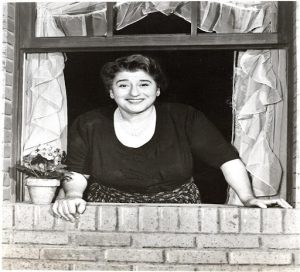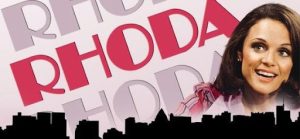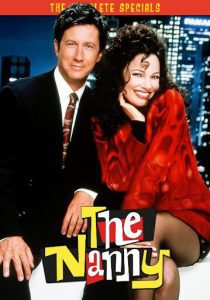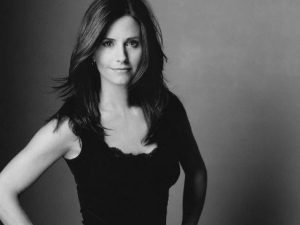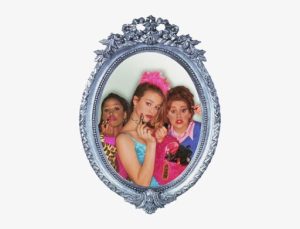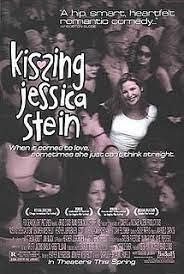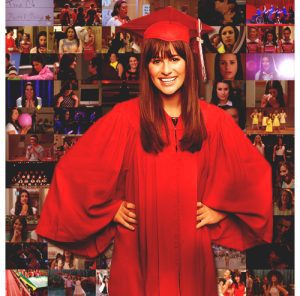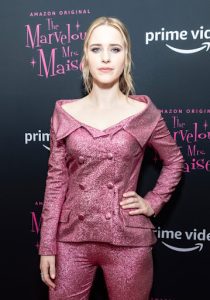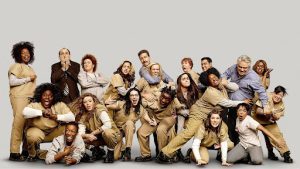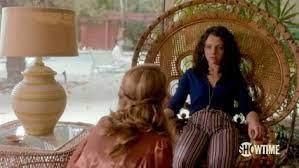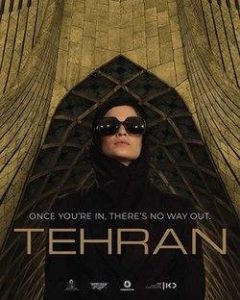Although various female Jewish characters existed prior to 1993, many consider Fran Fine from the hit show The Nanny to be a total game-changer. While she certainly drew her fair share of criticisms, she was the first breakout female Jewish lead since Gertrude Berg’s Molly Goldberg on The Goldbergs in 1949. Breaking barriers of all kinds, Fran brashly dominated TV screens, despite backlash, and even being offered better endorsements if only she would make the character Italian rather than Jewish. This makes Fran Fine an appropriate and approachable point at which to consider new opportunities and horizons for female Jewish characters. With that in mind, let’s take a look at some other notable Jewish female characters and how the Jewish feminine character has evolved since then.
The Precursors
While Fran Fine was by no means the first female Jewish character on TV, she was the first widely embraced and celebrated femme Jewish lead since 1949. Prior to that, there was Molly Goldberg. The Goldbergs began on radio, went to Broadway, became a movie, and was eventually made into a television show.
More About Molly
As the matriarch of the bunch, Molly Goldberg was an essential character in all versions of the show. One of the most impressive parts about the Molly character is that it was created entirely by Gertrude Berg. She wrote all her lines and played the character for 20 years on radio and then another five on television. Although she was in no position to challenge the goyishe status quo, she did serve as a significant source of inspiration for female Jewish actors for many years to come.
Molly was admired by many and considered to be the quintessential shtetl momma on TV. She was sincere, maternal, ingenious, and nurturing, while also trading in well-known Jewish mom stereotypical traits – being overbearing and inexorable. She also had the charisma that worked her way into the hearts of Jewish and non-Jewish homes. No matter how you felt about her, she was one of the only Jewish women with a voice in entertainment for nearly three decades.
Certainly, there were Jewish actors, and Hashem knows Jewish writers were everywhere and in every serious writing room, but overtly Jewish characters who celebrated their Jewishness instead of hiding it, or avoided the typecasting of scheming, were rare.
Post-Molly
Although they were not exactly leading ladies, several notable female Jewish roles were sandwiched between the mother of matriarchs, Molly, and the new age reinvention of this role, Fran Fine.
“…overtly Jewish characters who celebrated their Jewishness instead of hiding it, or avoided the typecasting of scheming, were rare.”
Rhoda Morgenstern (1970-1978)
If you watched the Mary Tyler Moore Show, this character needs no introduction. Rhoda was the smart-mouthed bestie of the leading lady, Mary. Rhoda was a proudly Jewish character who struggled with her self-perception, weight, and her love life. Much to her credit, Rhoda’s personality was so infectious that she landed her own spinoff show: Rhoda.
Playing Rhoda won actress Valerie Harper several Emmy awards, though she herself wasn’t Jewish.
Although Rhoda dreamed of the married life, it seems that her audience had different plans for her. Once they got a glimpse of married Rhoda, their interest began to dwindle. The creators of the show did everything they could to recapture the audience (including ending the marriage between her and her husband, Joe), to no avail. As a result, Rhoda was officially canceled in 1978. Outside of a made-for-TV film, Mary and Rhoda, which aired in 2000, the character was never heard from again.
Sheva (1981)
Sheva was the leading lady co-star in the 4-part mini-series, Masada. Sheva was the Jewish mistress of Lucius Flavius Silva, a Roman military leader. Although this vixen had a somewhat powerful position, the series earned some of the worst ratings in recent television history, so most people did not see it.
From Fran Forward (1993-1999)
Fran Fine marked the beginning of a new age of female Jewish characters. Not only did she break the mode in terms of how Jewish women were portrayed on television, but she also managed to do so in a comedic, caring, and incredibly stylish way. Even better, she helped to redefine how Jewish women were perceived on TV. Fran was strong yet delicate, brash, but also sweet and feminine. Although she did somewhat play into the stereotype of being obsessed with marrying Mr. Right (Mr. Sheffield, specifically), she eventually managed to get him. This proved that Jewish women didn’t have to marry Jewish, nor did they have to stick to partners with the same socioeconomic background.
Monica Geller (1994-2004)
Since the world fell head over stilettos in love with Fran Fine, there was officially room for more female Jewish characters on television. Monica Gellar represented the everyday Jewish young woman. Although she also fed into certain Jewish stereotypes – you cannot get too far ahead of your audience, she really served to make young Jewish women more relatable. She was also the “mother hen” of the group, which did reinforce the notion that Jewish women were nurturing to the point of being intrusive, but still in a very loving way.
Cher Horowitz (1995)
Cher Horowitz gave us all a run for our money, and she’s still with us, having made the cross over to subsequent generations’ social media madness. Although her rich lawyer dad also didn’t do much to dispel stereotypes, Cher, being an aloof, materialistic all-American teen with a heart of gold, thwarted infatuation with a gay boyfriend, and an African American bestie certainly did. Unlike Monica Gellar, the Jewish girl next door, Cher was the girl from across town who lived in the gated community most young women only dreamt of.
Cher was the Clueless girl that all girls, regardless of their culture or religion wanted to be friends with. Cher showed that it was very possible for a Jewish girl to embrace her lineage while also embracing American pop cultural trends and at times, even leading the in-crowd.
Jessica Stein (2001)
Jessica Stein took Jewish lady characters over the rainbow with her bold exploration of the lady pond. The leading lady of the film, Jessica Stein, takes the audience on an array of twists and turns from the beginning of the film to the very end. Despite starting the film as a modern, typical straight Jewish woman living in NYC, she eventually befriends a fellow successful professional woman, Helen Cooper.
The friendship culminates in a romance between the two. Jessica eventually became a famous character by straight and gay Jewish and non-Jewish women alike. Tovah Feldshuh, a celebrated grand dame of theatre, played Jessica’s very Jewish mother. In a surplus at the intersection of love, feminism, and Jewishness, the ladies had a hookup at mom’s house, after Shabbos dinner, in Jessica’s childhood bedroom.
Rachel Berry (2009-2015)
Rachel Berry initially played up all the usual stereotypes. Rather than painting her as the all-American girl, like Cher, Rachel was a character that was Jewish out loud, and her character seems like she was very much meant to represent the Jewish community writ large on the show Glee. She also served as a road to self-acceptance for many Jewish girls and women.
Rather than whitewashing her Jewishness, she embraced it, culminating in her opting not to have a nose job after long battling insecurities about her appearance. It may seem obvious, and the topic has been tackled by shows before Glee, but every generation needs reminding.
The Marvelous Mrs. Maisel (2017-Present)
How can you create a list of influential female Jewish characters without covering The Marvelous Mrs. Maisel? A Jewish housewife with innate comedic timing and wit, she found her footing in comedy after committing to the hard work of her craft. Miriam (Midge) Maisel becomes a hero for single and divorced Jewish women who stand up in the face of adversity and keep going no matter what.
Once her husband leaves – they become friends later on, get remarried by mistake, and then…it’s complicated, she got a job at a makeup counter to make ends meet while also pursuing her (initially secret) career as a comedian. Mrs. Maisel careens from one historically significant event and personality and place to the other, touching markers of our shared cosmopolitan history. Pretty much everything about the show happens through an urban Jewish lens, including Midge being modeled on the late (great), very-Jewish, Joan Rivers.
Not an episode goes by without a Jewish story – whether Maisel’s parents, her ex, her former in-laws, the deli in which her comedic ilk gathers (shot in a repurposed old restaurant on the current Upper West Side!), Rabbi tumult, the Catskills, and more – all of them pitch-perfect.
Cynthia Beverly Tova (2013-2019)
The thought of an all-female-lead series that takes place in prison is certainly a notion the world had to evolve into accepting. Nevertheless, OITNB quickly became one of the most successful series ever with a cult following and countless articles and reviews dissecting its socially relevant twists and turns.
Cynthia Tova was a major game-changer. Black and a criminal, her role on OITNB changed the way many people perceived female Jewish characters. Showing how religion, faith, and culture can help those who are literally in their darkest hour, the episode in which Cynthia converted to Judaism was a powerful moment for Jewish women on TV. In the beginning, Cynthia’s cynicism and negativity defined her. Although she originally researched and claimed Judaism for access to better Kosher prison meals, which required duping a Rabbi, she found solace in learning and in the words she read, compelling her to sincerely convert.
In a particularly funny and memorable scene, the Rabbi assessing Tova’s commitment to converting turns out to know her (Jewish) also-in-prison “sponsor” – she went to Penn with the Rabbi’s cousin. Cynthia showed us that Jewish women could come from all walks of life and in every color, including orange, growing the network of “Jewish geography.”
Abby & Ilana
Abby & Ilana (re)introduced a female Jewish character with a few modern updates: the Jewish Millennial with a more defiant reimagination of what Jewish women are and can be. These multifaceted women certainly had the perfect name for the show, Broad City, notable in that it’s based on their real lives.
The series began online and featured the girls’ offbeat brand of comedy, which continued when the show made it onto TV. The show boldly embraced always-current topics such as intergenerational trauma, the complexity of sitting shiva, the notion of a Jewish birthright, and much more.
Maura Pfefferman (2014-2017)
Maura Pfefferman from Transparent was an important and controversial Jewish figure in the grand scheme of the evolution of the female Jewish character. As a trans-Jewish character on a series, though the actor wasn’t trans herself, and he was later accused of sexually exploitative conduct in real life and written off the series, Maura still warrants discussion. A divorced Jewish political science professor and parent of three adult children navigating their own relationship with Judaism, Maura pushed the envelope of the female Jewish character.
Transparent dove deeply into Jewish themes, also universal, of identity, trauma, history, ritual, and sparkly sex toys.
Julie Kessler (2015-2017)
Julie Kessler in Difficult People added plenty to the pool of Jewish gal character traits. Although many female Jewish characters have innate comedic talent, Julie was able to express this side of her outright. Providing a glib glimpse into the state of the dating pool, Julie was proudly, yet somewhat unhappily, single, as she hated everyone everywhere except her comedy comrade, Billy.
As an aspiring comedian, Julie brought the light-hearted side of fictional Jewish characters to life. She was funny, feminine, flirty, and sometimes filthy. In the end, she shows that there is no one way to be a Jewish gal living in NYC.
Goldie Herschlag (2017-2018)
As the often severe Jewish matriarch of a comedic crew, Goldie Herschlag from I’m Dying Up Here kept the audience dying and cringing from laughter. Funny, bossy, and highly successful during a time of rich life-comedy development, Goldie was proof that though Jewish women can have it all, there’s always a cost.
Modeled on real-life Mitzi Shore of LA’s storied Comedy Store, Goldie / Mitzi is still talked about by today’s comedy greats who got their tumultuous start under her legendary and difficult tutelage.
Jen & Judy (2019-Present)
Dead To Me is a captivating new age series. These female Jewish lead characters show how many, and how far, American-Jewish women have integrated into modern culture without forsaking their own cultural values. Although the show does not focus on the Jewish faith, the powerful Jewish funeral at the beginning of the series was enough to carry the idea throughout the seasons. The portrayal of these two characters shows how strong Jewish ideology can be even among those who are involved in the faith in their own ways. These women are not seen focusing on their religion, but a large part of the series is based on the words of a Rabbi who told Jen that in Judaism heaven and hell are nonexistent, and the most important things she can do is make up for the wrongdoing she has done in the world.
Tamar Rabinyan (2020-Present)
Tamar Rabinyan is a total bad a** fem-Jewish spy from Tehran. Shattering stereotypes of all kinds, Tamar shows what it’s like to be a Jewish woman in a world in which our still dangerous future is presumably female. Born in Iran but raised in Israel, Tamar embodies the modern-day complexities imparted by young women by simply being born Jewish.
Nevertheless, she is no damsel in distress; Tamar boldly becomes a spy to help neutralize Iranian air defenses in favor of Israel’s military tactical plans. In the end, she serves as a major inspiration to Jewish girls and women all over the globe. She shows that we are all human, and, when we’re up to the task, we can become superhuman.
In Closing
The female Jewish screen character has changed drastically over the years. They have gone from super stereotypical, to overly relatable, to versatile and superhuman. Each of these characters has a special place in not only Jewish culture but also in broader American culture. No matter which characters are your favorite, the underlying message is that Jewish women should be able to create and recreate themselves and choose their own adventures however they see fit.
The Author
Ivy Locke is a freelance writer and journalist with over a decade of varied experience. Among other things, she enjoys writing pop cultural commentaries and think pieces to promote thought-provoking conversations.





